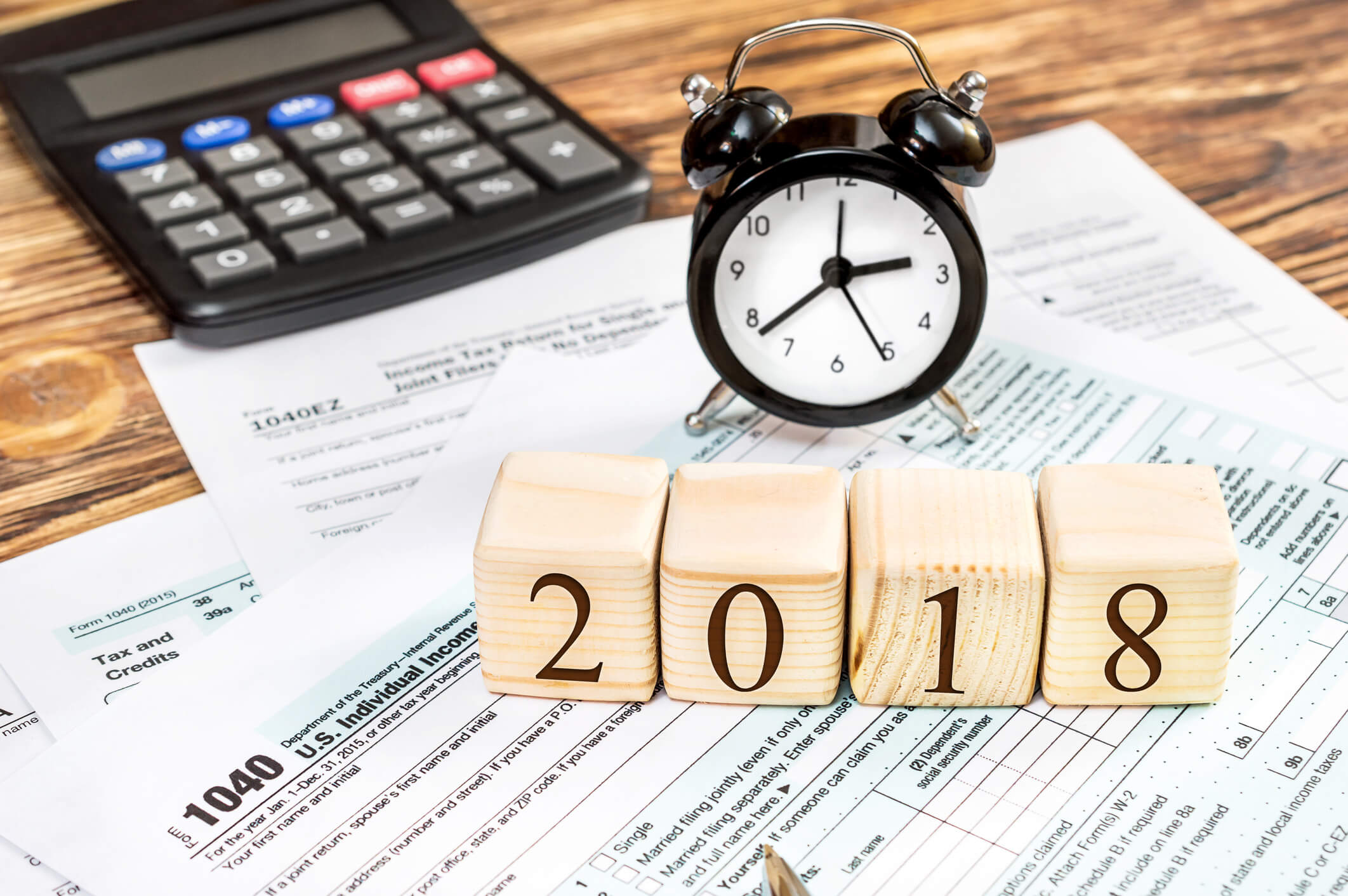The IRS issued temporary and final regulations on July 18th, 2017, updating the due dates and rules that define extensions (such as the time to file tax returns). The regulations apply to returns filed on and beyond July 20th, 2017. Much of the statutory changes were in effect from December 31st, 2017. Such changes supersede the final regulations.
In 2015, Congress passed many bills that incurred statutory changes, summarized within these final regulations. The statements contained provisions that were unrelated to or affected by the main bill. The two bills that did so were “Surface Transportation and Veterans Health Care Choice Improvement Act of 2015” and “Protecting the Americans from Tax Hikes Act of 2015”.
 If there is a case when a filing due date (for regular taxes) falls on a non-business day (such as a Sunday, Saturday, or a Public Holiday), the due date is postponed to the next business day. 2016 saw an adjustment in many of the due dates for filing because of this rule. These dates include:
If there is a case when a filing due date (for regular taxes) falls on a non-business day (such as a Sunday, Saturday, or a Public Holiday), the due date is postponed to the next business day. 2016 saw an adjustment in many of the due dates for filing because of this rule. These dates include:
- Individual and FBAR Due Date
- Form 1041 Due Date
- Partnership Extended Due Date
- Form 1041 Extended Due Date
- C Corporation Due Date
Tax Returns for 2017 That are to be Reported in 2018
- W-2 Forms, submitted either electronically or by mail, are due by January 31st.
- Partnership businesses are supposed to fill out Form 1065, and S Corporations must submit Form 1120S. Both of these are due on March 15th. The deadlines for these can be extended up until September 17th.
- Trusts and estates must submit Form 1041. Form 1120, which has to be provided by C Corporations, must be submitted by April 17th. These can be extended up until October 1st and October 15th, respectively.
- Tax-exempt organizations are due to submit the Form 990 Series by May 15th. The extended due date for this form is November 15th.
- The Form 5500 Series, which is supposed to be submitted for the Employee Benefit Plan, is due on July 31st, with the extended due date being November 15th.

The following is accurate for the corporations and businesses that file according to Fiscal Years.
Filer Type | Due Date (Counted after End of Fiscal or Plan Year) |
S Corporations and Partnerships | The Fifteenth Day of the Third Month |
C Corporations | The Fifteenth Day of the Fourth Month |
Employee Benefit Plan | Last Day of The Seven Month |
It is essential to check the due dates for tax returns in the states relevant to you because, sometimes, the due dates set by individual states may differ from the federal due dates for filing.
Changes That You Should Be Aware Of
- Form 1065 Filers (Partnerships) are getting a more extended extension period, up to 6 months. Previously, they were able to have a five-month extension.
- Form 1041 Filers (Trusts and Estates) have a maximum extension of 5 ½ months, granting them a two-week longer limit of extensions than the threshold for previous rules.

- The Report regarding Employee Benefit Plans will be getting an automatic extension to a maximum of 3 ½ months.
- Reporting of Data on Financial and Foreign Bank Accounts will have the same due date as Individual Form 1040, with an extension of up to 6 months. The convenience provided by this change is the alignment of the Individual and FBAR filing. The IRS can waive the penalty for failure to file a request for an extension in time.
- The automatic extension for those filing the 990 Series (i.e., Tax Exempt Organizations) will be a six-month extension rather than the former three-month automatic extension.
Conclusion
When filing taxes for a new year, you should study the latest tax information. If in doubt, hire a tax professional. These accounting specialists will be up-to-date on all the latest tax codes and information. They will also be able to get you the lowest tax debt possible.
You can use tax software if you cannot afford a tax specialist. Do your research before filing your taxes, whether you use a professional or do it yourself.
 About Complete Controller® – America’s Bookkeeping Experts Complete Controller is the Nation’s Leader in virtual bookkeeping, providing service to businesses and households alike. Utilizing Complete Controller’s technology, clients gain access to a cloud platform where their QuickBooks™️ file, critical financial documents, and back-office tools are hosted in an efficient SSO environment. Complete Controller’s team of certified US-based accounting professionals provide bookkeeping, record storage, performance reporting, and controller services including training, cash-flow management, budgeting and forecasting, process and controls advisement, and bill-pay. With flat-rate service plans, Complete Controller is the most cost-effective expert accounting solution for business, family-office, trusts, and households of any size or complexity.
About Complete Controller® – America’s Bookkeeping Experts Complete Controller is the Nation’s Leader in virtual bookkeeping, providing service to businesses and households alike. Utilizing Complete Controller’s technology, clients gain access to a cloud platform where their QuickBooks™️ file, critical financial documents, and back-office tools are hosted in an efficient SSO environment. Complete Controller’s team of certified US-based accounting professionals provide bookkeeping, record storage, performance reporting, and controller services including training, cash-flow management, budgeting and forecasting, process and controls advisement, and bill-pay. With flat-rate service plans, Complete Controller is the most cost-effective expert accounting solution for business, family-office, trusts, and households of any size or complexity.




